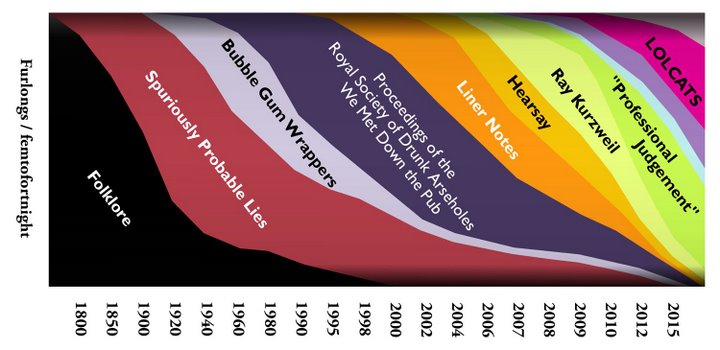How many spoken languages? How many computer languages?
Jeff Shaumeyer wrote recently on my Facebook wall to report that
In another facebook conversation a friend said "I read that there have now been more programming languages than spoken languages of all time." Is this even remotely possible?
Mike Geis immediately fixed on one problem with the claim, the problem of counting languages, whether you're counting human languages (spoken or signed) or computer languages. While we were contemplating these well-known issues (sources that attempt to put a number on human languages give a range — things like "5,000 to 10,000" — and the number of languages listed in the Ethnologue go up with each edition; the 15th edition has 6,912 entries, but a new edition will be out soon, and it's bound to have more), Jeff posted that
the friend discovered that he dramatically misremembered the result he was paraphrasing.
(whew!) but returned to the original claim, saying,
Just by orders of magnitude I found it incredible that more computer languages/dialects could have been created in the last hundred years than the total of spoken languages/dialects that had ever been.
Here's the second problem: "of all time" in Jeff's first message, "that had ever been" in the second.
Read the rest of this entry »
Permalink Comments off

